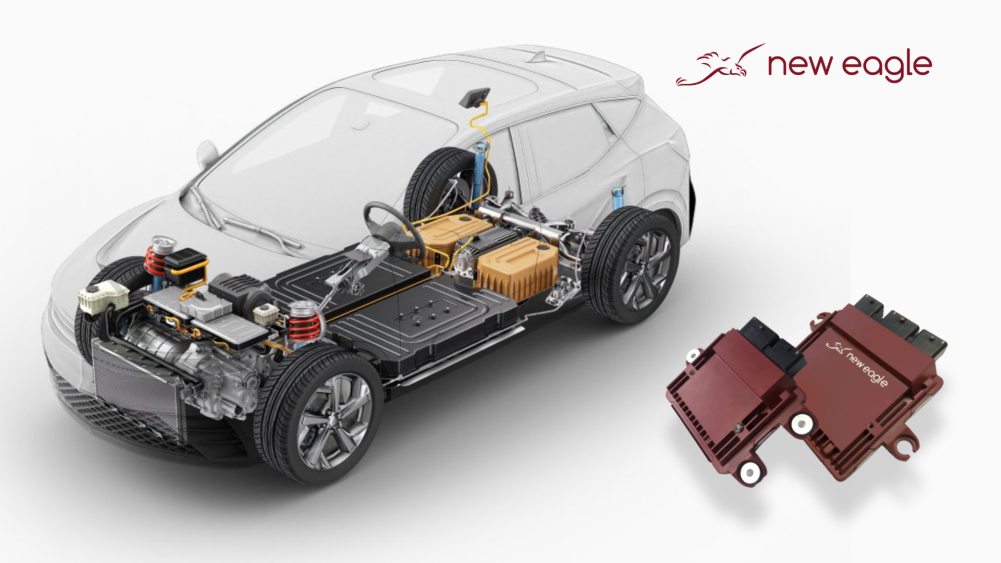Going electric can be overwhelming, especially when it comes to electronic control units (ECUs)—the electric vehicle’s brain. So we asked our experienced New Eagle engineers to answer five common questions about ECUs.
What do electronic control units do?
Electronic control units control a vehicle’s electrical systems. They run software to manage essentials such as the engine, safety protocols, emergency braking, and keyless entry. They also manage comfort features like eight-way adjustable front seats.
How do ECUs work?
An ECU receives input from different parts of the vehicle and uses that information to take any needed action. For example, if a car approaches a stopped vehicle too quickly, the automatic emergency braking electronic control unit receives inputs from radars detecting the obstacle, and then engages the brakes to avoid a collision.
How many electronic control units does my vehicle need?
Some vehicles have a single ECU controlling everything, the way a desktop computer uses a central processor to run multiple applications. But most vehicles have many specialized and dedicated electronic control units for each electronic feature, with the control modules divided up by the type of task they perform. A typical vehicle today may contain over 100 dedicated ECUs.
Should I build or buy my ECU?
If you answer “yes” to any or all of the following questions, you should consider a custom-built ECU:
- Will our end products be low in volume and highly customized?
- Will this vehicle be for personal or hobbyist use?
- Will this vehicle be for educational use?
- Will our end volume of products be so high that we need to invest significantly upfront to optimize costs?
On the other hand, a “yes” for any or all of the following criteria is a good indication that you should purchase your ECU:
- Our goals include mass production.
- We need to leverage the economy of scale and/or control costs.
- We need an automotive-validated piece of hardware.
- Our team simply cannot invest in custom-building an ECU.
How do I select the right ECU?
Here are six key areas that you need to weigh equally when purchasing electronic control units.
1. Evaluate supplier strength
Look for an ECU provider with a robust supply chain and reputable, real-world-tested suppliers.
2. Estimate costs and production up front
A good ECU supplier will help you understand the difference between prototype and production pricing and be able to scale with you.
3. Gauge software and production capability
Choose an ECU that is compatible with your software and production processes.
4. Ensure IP ownership and maintenance
Ask about IP ownership up front: you want an ECU supplier that lets you control your own IP.
5. Assess supply stability
Vet your ECU partner’s supply chain so you’re not stuck waiting for a part that’s discontinued.
6. Confirm service and support
If there’s a problem down the road, find out how to get in touch, with whom, and how long a solution will take.
The ECU performs complex, critical functions so selecting the right one for your project is crucial. Check out our ECU Buyer’s Guide for more detailed advice on choosing the right ECU and the right supplier.




